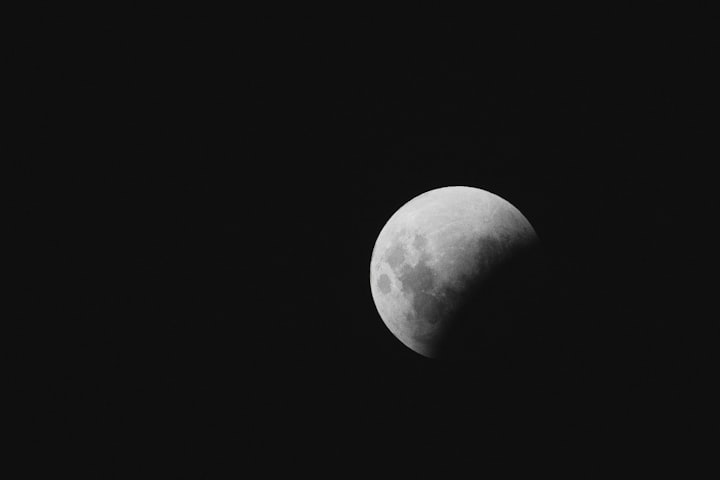why is Pluto no longer regarded as a planet?
Pluto

Pluto is no longer viewed by the International Astronomical Union (ISU) as a planet, much to the dismay of planetary scientists. Pluto is positioned as a small planet, and the main reason for this is that it has not been able to remove other elements from its orbit. Some planetary scientists, including NASA, want to restore Pluto's position as a planet.
"I do not focus on how important the planet is, but more importantly the connection is that there are different types of planets in different places.
The planets of the body are celestial bodies that meet the first two ways of the new meaning of the planet. The dwarf planets are large enough to draw their energy to the planet's orbit, but they are not as unusual as the many small asteroids. According to National Geographic Online, the planets must be large enough to rule the earth.
Pluto and his moon Charon, the planet whose original meaning was raised on August 16, tarnished its image as part of a sea of other celestial bodies. On the other hand, the Earth and the other eight major planets have released large sections of space into larger objects.
The IAU decision means that the solar system now includes eight planets: Mars, Jupiter, Saturn, Uranus, Earth, Venus, and Mercury. The first member of the new and distinct celestial body, Ceres, Pluto, and Eris, was known in 2003 as UB 313.
The term "planet" does not mean much to people who like organized labels, which divide things into groups. Asteroids, comets, and moons have proven to be useful fields but it helps to have a free planet label when you talk about things around the sun. Astronomers recommend handling these two objects as a binary system, a planet, and a satellite.
Pluto has a circular motion around the Sun, but it does not meet these conditions because its orbit crosses the Neptune orbit. The controversy arose for a while because not everyone agreed with this definition, but Pluto did not meet the third principle of being a short planet. Its unusual orbit that crosses the Neptune trail says nothing about its neighbor, so it does not fit well.
Solution 6a addresses Pluto by calling it the smallest planet. Critics have claimed that some planets in our solar system, including the Earth, have no clear neighbor like Pluto, far removed from his parents' planet.
In 2006, astronomers from the International Astronomical Union met to vote on whether Pluto should always be named the ninth planet or not. The decision to define the term "planet" was adopted by union members. Pluto is classified as a small planet because it is large enough to form a sphere, but it is not large enough to exercise its dominant power in the vicinity of its orbit.
Pluto was known as the smallest planet in our solar system and was very far from the sun. Many astronomers love Pluto and consider him to be the younger brother in the solar system, but they are hesitant to exclude him from the planetary club. They think that it is a mistake to call Pluto a planet at all since it was called the Kuiper Belt thing in the first place.
Pluto is 5.8 billion miles wide and takes 24.8 years to orbit the sun. Many other planets revolve around the Sun in a circular or circular motion, but Pluto is stationary. Although Pluto is so small, its orbit is so far from the Sun that it needs a circular shape to be considered a planet.
Pluto was expelled in 2006 when the International Astronomical Union (IAU) proposed a new definition of a planet and ruled that Pluto was not compatible with the new definition.
Distant Pluto is famous for being the only planet ever discovered by the United States. It is about the size of our planet and is located at the farthest point of our solar system, the Kuiper Belt, which requires telescopes to see it. While Pluto's planetary days will be remembered for decades, it is also significant that our solar system is the smallest and most distant planet.
When the IAU took the south in 2006 to Pluto for what it meant to be a planet, it states that the planet is a celestial body orbiting the Sun in a circular, clear orbit around it. The masses and containing the same ice-rock mix are much larger than Pluto and the idea that we have nine planets in the solar system began to deteriorate.
Astronomers have decided on the final resolution of the planetary definition at the XXVith International Astronomical Union General Assembly which took place from August 14 to 25, 2006 in Prague, Czech Republic. This has resulted in a deliberate channel between the Planetary Definition Committee and the proposed IAU General Assembly. The further development of the new definition of the word planet was discussed, and further discussions formed the final consensus vote.
Knowing how to define its meaning, the International Astronomical Union (IAU) voted to allow the second class of citizens' so-called "dwarf planets" to meet the third condition. One type of explanation raised the number of planets to 12, and Pluto and the planets Eris and Ceres were considered to be major asteroids. One suggestion would be to leave the number at 9 and define it as a standard number without scientific reason, while the third would reduce the number to 8 and Pluto would leave the planet club.
Without prejudice, it should be noted that stars like the planet in the galaxy show a much larger size, manifestation, and behavior than we can imagine. There is no reason for the scientific purpose to bind a world like Pluto because it differs from the eight world clubs.
About the Creator
Radha Karki
I am very curious ar learning new things, love to read books, paintings, art, and love singing too.





Comments
There are no comments for this story
Be the first to respond and start the conversation.